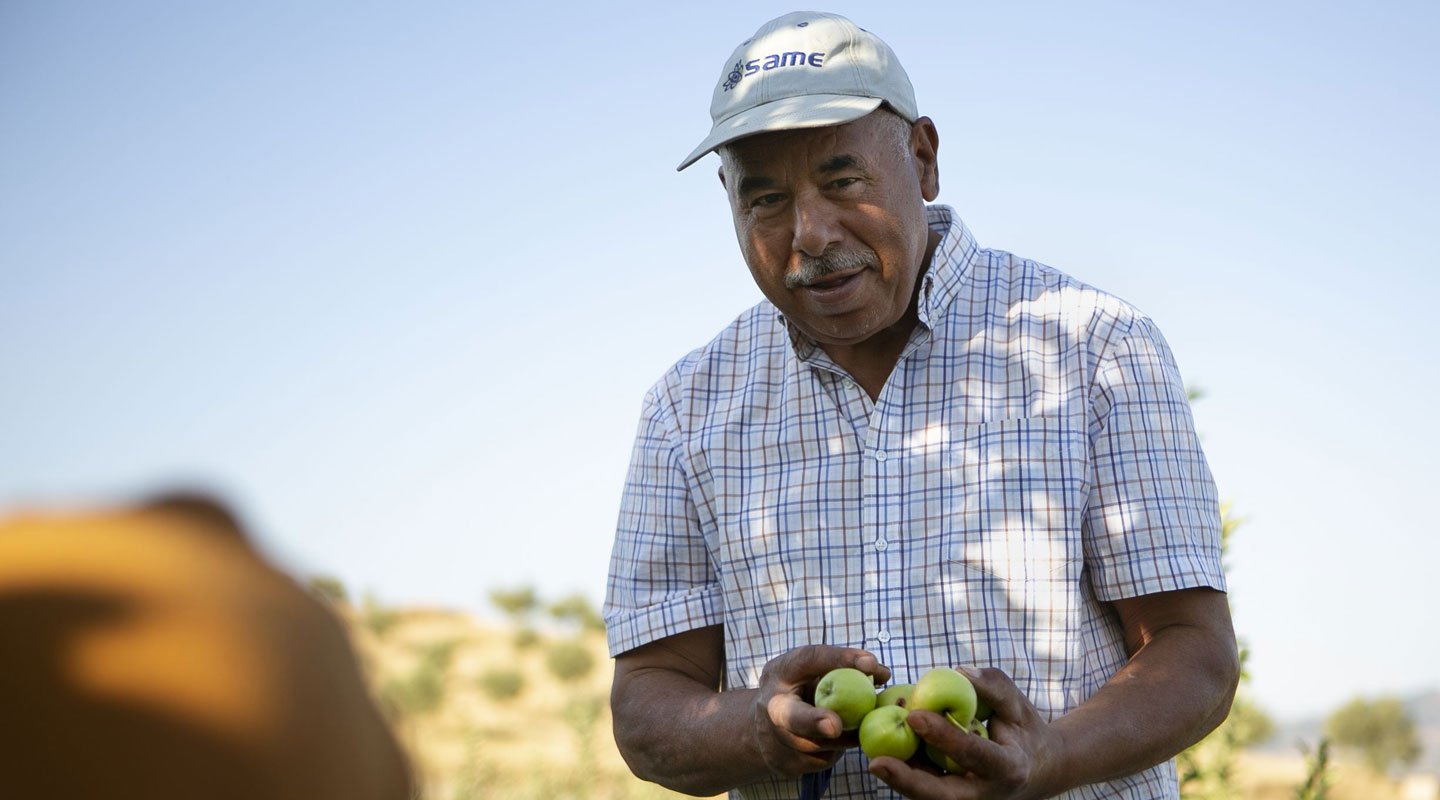Why the Sustainable Development Goals matter: your questions answered
IFAD Asset Request Portlet
Asset Publisher
Why the Sustainable Development Goals matter: your questions answered
Estimated reading time: 4 minutes
In 2015, the world’s countries met at the United Nations headquarters in New York with a common aim: to commit to a new world, one free of poverty and deprivation, with no one left behind. The target year? 2030.
This month marks the half-way point of this historic call to action. As countries meet again to evaluate their progress, we're throwing some light on the Sustainable Development Goals (SDGs).
What are SDGs and why are they important for rural people?
The SDGs are a global challenge to create a better and more just future for all by achieving 17 objectives.
About 3.4 billion people live in rural areas of developing countries. They produce much of the food for their communities and the world – yet four out of five experience hunger and food insecurity, with limited prospects for prosperity.
Achieving the SDGs means changing this—and the lives of billions of rural people—forever.
How is progress going so far?
 |
| Countries are behind on goals, including gender equality and climate action. © IFAD/Roger Anis |
Unfortunately, not great. With seven years to go, progress is proving patchy.
While millions of people have lifted themselves out of poverty, setbacks like the COVID-19 pandemic and climate shocks means millions more are held back or are treading a very fine line. If we don’t act now, by 2030 over half a billion people—most of them in sub-Saharan Africa—will still live in extreme poverty.
When it comes to ending hunger, although enough food is produced to feed everyone on the planet, one in ten people experiences chronic hunger, with the number expected to grow. Our flawed food systems and dwindling public spending in agriculture are partly to blame, along with conflict and climate change.
We’re also falling behind on other important goals.
For many women, gender equality remains a distant dream. At the current rate, it will take 286 years to remove laws that discriminate against women. Rural women are particularly vulnerable to gaps in legal protection: nearly 60 per cent of countries studied have little or no protection for women’s rights to land.
We’re also falling behind on climate action and conserving biodiversity. The realities of climate change are being felt in every corner of the planet, with rural people on the frontline. Developed countries still haven’t fulfilled their pledge to mobilize US$ 100 billion annually in climate finance while small-scale rural producers receive only 1.7 per cent of what is available.
How does IFAD help countries achieve the SDGs?
IFAD projects give rural people the tools to lift themselves out of poverty and prosper, even in the face of setbacks. In Tonga, the Pacific Island Rural and Agriculture Stimulus Facility helped local farmers rebuild their food systems and communities after a massive tsunami devastated coastal areas in 2022.
We reduce inequalities in wellbeing, opportunity and prosperity that many rural people—especially women, youth, people with disabilities and Indigenous Peoples—experience. We connect rural people to finance, including through digital means, helping them invest in their futures and build resilience against shocks.
Healthy food systems are key to our planet’s survival. IFAD is working to transform them, so every person on the planet has access to enough diverse and nutritious food, while ensuring that rural people get a fair return for their labour, and that biodiversity and natural resources are conserved rather than unsustainably exploited. In Kenya, Mali and Bhutan, IFAD supports farmers to grow indigenous grains, like millet, which can withstand a warming climate and provide more nutrition.
Despite being key contributors to rural economies, women often have less access to resources and services. That’s why IFAD projects support gender equality. In Burundi, special legal clinics were set up to empower women to take ownership of the land they labour on.
IFAD mobilizes climate finance and advocates for spending it on rural people. We partner with the GEF and are aiming to channel US$ 500 million under ASAP+ for climate change adaptation and mitigation benefiting small-scale producers.
Can the world achieve the SDGs?
 |
| Rural people hold the keys to achieving sustainable development and climate action. ©FAO/Guzal Fayzieva |
There is still time left to achieve the SDGs, but only if we pull together and recommit to transformative action, concrete policies and clear accountability.
Rich countries should mobilize resources to help developing countries achieve the SDGs. A $500 billion stimulus plan is needed to help poor countries tackle pressing challenges, like debt distress, access to development financing and contingency financing.
Public development banks must recognize that sustainable development is the bedrock of economic development and to direct resources to meeting the greatest challenges of our time: poverty, food security and climate change.
Above all, the world must attend to the urgent needs of rural people in low- and middle-income countries – and recognize that they hold the keys to achieving sustainable development and climate action that benefits us all. It’s crucial to invest in them now to reap benefits in the future.
Let’s make the next seven years count.
Publication date: 18 September 2023